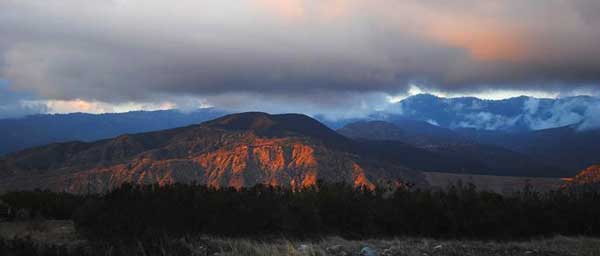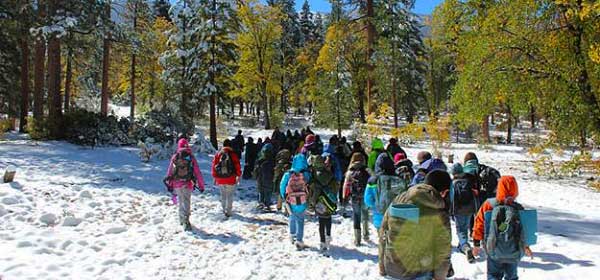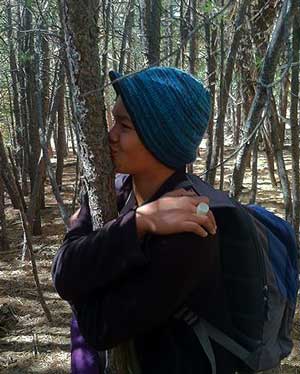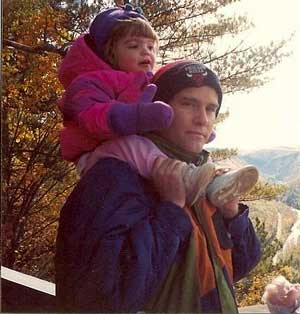I remember going grocery shopping with my dad one time. I begged for a candy bar.
He answered with his famous Rolling Stones quote, “You can’t always get what you want.” This was sort of a family joke, but it has stuck with me my entire life. After recently rereading the book Hatchet by Gary Paulsen, I found myself singing my dad’s jingle when the protagonist, Brian Robeson, craved a candy bar. Brian remembered how easy it had been to walk into a store and just buy food when he was hungry. That wasn’t the case anymore, “nothing is that easy. Not out here, not in this place. Nothing is easy.”
Thirteen-year-old Brian Robeson, from New York City, is on his way to visit his father in the Canadian wilderness when the single engine bush plane that he is riding in crashes. With nothing more than the tattered jacket on his back and the hatchet his mother had given him, Brian must quickly disregard his “city boy thoughts” that leave him frustrated, hopeless, and full of self-pity.

Brian faces a choice: grow up and be tough, or die. He accepts the challenge.
 While he is accustomed to the conveniences of urban life, in the wilderness he must become completely self-sufficient. This is learned through multiple trial-and-error scenarios. “Small mistakes could turn into disasters, funny little mistakes could snowball so that while you are still smiling at the humor you could find yourself looking at death. In the city if he made a mistake usually there was a way to rectify it, make it alright.”
While he is accustomed to the conveniences of urban life, in the wilderness he must become completely self-sufficient. This is learned through multiple trial-and-error scenarios. “Small mistakes could turn into disasters, funny little mistakes could snowball so that while you are still smiling at the humor you could find yourself looking at death. In the city if he made a mistake usually there was a way to rectify it, make it alright.”
Readers follow Brian’s transformation from a vulnerable boy with dulled senses, due to the constant stimulation of the city, into a self-sufficient, accomplished young man who gains appreciation for the beauty of nature and its sights and sounds.
The story focuses on the stark contrasts between urban and wilderness lifestyles, such as not having commercial conveniences. When it comes to conveniences, Brian quickly learns that he cannot just go to the fridge and grab a sandwich when he is hungry. He must be self-sufficient by teaching himself how to hunt through trial-and-error. Simple luxuries such as food, water, and shelter cannot be taken for granted as they once were in the city.
Accomplishing these duties on his own makes the results of his work all the more gratifying.
As a result of Brian’s increased respect for nature, he becomes increasingly more patient and observant. He begins to marvel at the beauty all around him, “at first, it was silent or he thought it was silent, but when he started to listen, really listen, he heard thousands of things.” This realization that there is more to life than just the hum and whine of city traffic is what we strive to teach the students that come to us at High Trails.

High Trails students share many similarities with the protagonist of Hatchet
Many come from urban areas and take simple luxuries such as electricity, hot food, and safety from the elements for granted. Our goal is to bridge that gap between child and nature. As outdoor educators, we strive to excite students about the outside world through questions and exploration. What sound does a bird make? Is there ever really silence in the woods? How long can you hold your hands in a mountain stream before they go numb?
 We hope that they develop appreciation, awe, wonder, and respect for the natural world that they live in, just as Brian did. “I am not the same, he thought. I see, I hear differently. He did not know when the change started, but it was there; when a sound came to him now he didn’t just hear it, but would know the sound. And when he saw something – a bird moving a wing or a ripple on the water – he would truly see that thing, not just notice it as he used to notice things in the city. He would see all parts of it; see the whole wing, the feathers, see the color of the feathers, see the bush, and the size and shape and color of its leaves.”
We hope that they develop appreciation, awe, wonder, and respect for the natural world that they live in, just as Brian did. “I am not the same, he thought. I see, I hear differently. He did not know when the change started, but it was there; when a sound came to him now he didn’t just hear it, but would know the sound. And when he saw something – a bird moving a wing or a ripple on the water – he would truly see that thing, not just notice it as he used to notice things in the city. He would see all parts of it; see the whole wing, the feathers, see the color of the feathers, see the bush, and the size and shape and color of its leaves.”
Is this not the same change in character that we wish to see in the students that come to High Trails Outdoor Science School?
Brian learned, just like the Rolling Stones’ song, that “you can’t always get what you want, but if you try sometimes, you might just find, you get what you need.” He learned that nature could provide what he needed, and became resourceful and respectful of nature, which is what we teach at High Trails.

Caroline and her father
At High Trails Outdoor Science School, we literally force our instructors to write about elementary outdoor education, teaching outside, learning outside, our dirty classroom (the forest…gosh), environmental science, outdoor science, and all other tree hugging student and kid loving things that keep us engaged, passionate, driven, loving our job, digging our life, and spreading the word to anyone whose attention we can hold for long enough to actually make it through reading this entire sentence. Whew…. www.dirtyclassroom.com

Comments are closed.